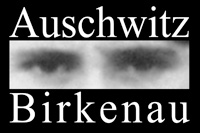




Meaning of Auschwitz in the history of Europe
Auschwitz is the most recognizable symbol and place of genocide in the world. The 20th century showed there are no borders a human will not cross.
Without the European experience of the Second World War, of which the former Nazi German Auschwitz concentration camp is the clearest symbol and at the same time tangible evidence, there would not be such a deep will to reorganize the coexistence of countries in the free, democratic regions of the Old Continent after 1945.
If it had not been for what Auschwitz symbolizes, the fathers of the united Europe – Konrad Adenauer, Robert Schumann and Alcide De Gasperi among others – would not have strived that hard to change the general coexistence principles, underlining cooperation instead of internal competition. Instead of creating great and unsupported ideals, they decided to make use of an economy which requires cooperation and the elimination of borders.
Paradoxically, Auschwitz is the corner stone of the postwar, unified Europe.
